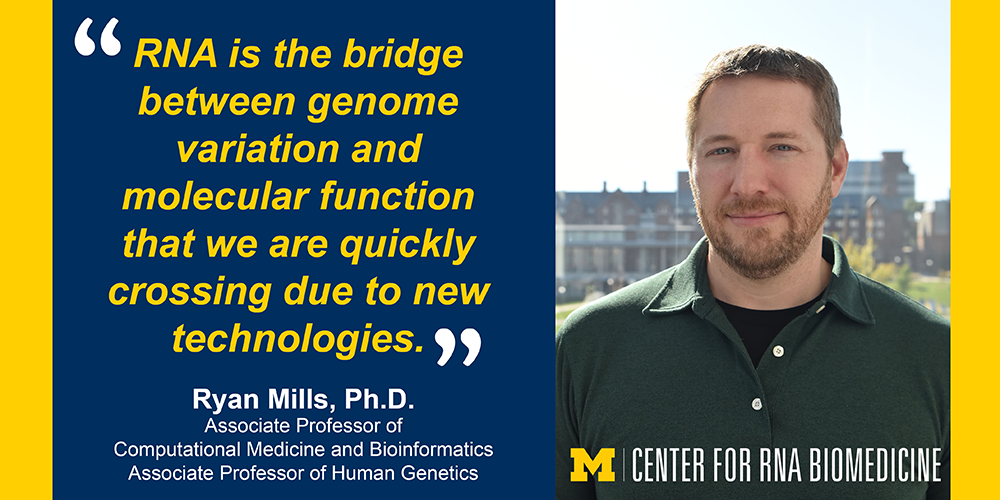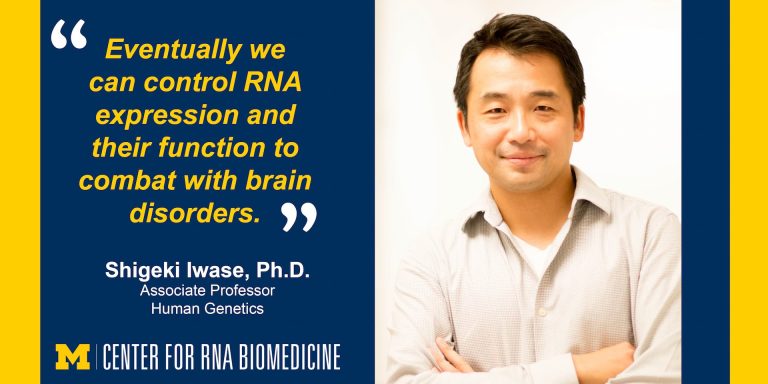RNA Faculty Spotlight — Ryan Mills, Computational Medicine and Bioinformatics
Ryan Mills, Ph.D.
Associate Professor of Computational Medicine and Bioinformatics
Associate Professor of Human Genetics
Our laboratory develops methods for analyzing RNA sequence data, with a focus on quantifying and assessing rates of translation using ribosome footprinting techniques. We are also actively studying novel mechanisms of translational regulation at the transcriptional level.
Visit Lab Website
View Michigan Research Experts Profile
Follow on Twitter: @ryan_e_mills
- What are your research interests? My research group is focused on developing computational methods to further our understanding of how information is encoded in cells. We are particularly interested in how that information can vary between individual cells, tissues, and between individuals and what impact these differences have on molecular function. While much of our work has harnessed large sets of genetic data, we have recently begun to explore how genetic variation can alter RNA expression and translational dynamics.
- Who/what brought you to science? I was initially aiming towards a medical career, but I have always had a passion for computers and algorithms. As I was nearing completing of my undergraduate degree, I became fascinated with the Human Genome Project and how there would be a large need for individuals who not only understand biology and genetics but who also could develop tools to explore questions in these areas at a large-scale using computational approaches. The field of bioinformatics seemed almost tailor-made for individuals such as myself who enjoyed both areas, and since graduate school I have never looked back.
- What advice would you give to students who’d like to get more involved in research? Curiosity is the cornerstone of science; most researchers have a specific question or set of questions that they are driven to answer and figuring out what specific biological problem you wish to solve is an integral aspect of scientific training and development. However, I would proffer that it is equally important to enjoy the -process- by which you answer that question, as you will be spending most of your time at a bench or computer doing experiments.
- Are there any opportunities for students to engage in your projects, currently or in the future? What skills would they need, and what could they expect to learn? We have several ongoing projects that are focused on integrating sequence data across different layers of informational molecules (DNA, RNA, Protein). Students who work in these areas typically require a solid programming foundation (typically Python or R) as well as training in statistics and genetics, and they can expect to learn more advanced programming techniques as well as algorithm implementation and high-performance computing. Computational research groups also tend to have many collaborations with molecular labs, and so students can expect to learn more in-depth biology through these partnerships.
- What profession other than your own would you like to attempt? One of my hobbies is playing board games, and I think it would be exciting to try and develop one myself.


